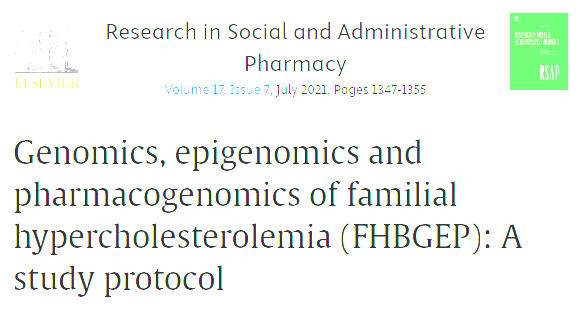Identification of pathogenic variants in the Brazilian cohort with Familial hypercholesterolemia using exon-targeted gene sequencing
Familial hypercholesterolemia (FH) is a monogenic disease characterized by high plasma low-density lipoprotein cholesterol (LDL-c) levels and increased risk of premature atherosclerotic cardiovascular disease. Mutations in FH-related genes account for 40% of FH cases worldwide. In this study, we aimed to assess the pathogenic variants in FH-related genes in the Brazilian FH cohort FHBGEP using exon-targeted gene sequencing (ETGS) strategy. FH patients (n = 210) were enrolled at five clinical sites and peripheral blood samples were obtained for laboratory testing and genomic DNA extraction. ETGS was performed using MiSeq platform (Illumina). To identify deleterious variants in LDLR, APOB, PCSK9, and LDLRAP1, the long-reads were subjected to Burrows-Wheeler Aligner (BWA) for alignment and mapping, followed by variant calling using Genome Analysis Toolkit (GATK) and ANNOVAR for variant annotation. The variants were further filtered using in-house custom scripts and classified according to the American College Medical Genetics and Genomics (ACMG) guidelines. A total of 174 variants were identified including 85 missense, 3 stop-gain, 9 splice-site, 6 InDel, and 71 in regulatory regions (3'UTR and 5'UTR). Fifty-two patients (24.7%) had 30 known pathogenic or likely pathogenic variants in FH-related genes according to the American College Medical and Genetics and Genomics guidelines. Fifty-three known variants were classified as benign, or likely benign and 87 known variants have shown uncertain significance. Four novel variants were discovered and classified as such due to their absence in existing databases. In conclusion, ETGS and in silico prediction studies are useful tools for screening deleterious variants and identification of novel variants in FH-related genes, they also contribute to the molecular diagnosis in the FHBGEP cohort
Authors
Borges JB, Oliveira VF, Dagli-Hernandez C, et al.
External link
Publication Year
Publication Journal
Associeted Project
Microbiology or Immunology
Lista de serviços
-
RASL11A, member of a novel small monomeric GTPase gene family, is down-regulated in prostate tumors.RASL11A, member of a novel small monomeric GTPase gene family, is down-regulated in prostate tumors.
-
Splice variants of TLE family genes and up-regulation of a TLE3 isoform in prostate tumors.Splice variants of TLE family genes and up-regulation of a TLE3 isoform in prostate tumors.
-
Concepts on Microarray Design for Genome and Transcriptome AnalysesConcepts on Microarray Design for Genome and Transcriptome Analyses
-
The iron stimulon of Xylella fastidiosa includes genes for type IV pilus and colicin V-like bacteriocins.The iron stimulon of Xylella fastidiosa includes genes for type IV pilus and colicin V-like bacteriocins.
-
Origins of the Xylella fastidiosa prophage-like regions and their impact in genome differentiation.Origins of the Xylella fastidiosa prophage-like regions and their impact in genome differentiation.
-
The role of prophage in plant-pathogenic bacteria.The role of prophage in plant-pathogenic bacteria.
-
Genetic control of immune response and susceptibility to infectious diseases.Genetic control of immune response and susceptibility to infectious diseases.
-
Building capacity for advances in tuberculosis research; proceedings of the third RePORT international meeting.Building capacity for advances in tuberculosis research; proceedings of the third RePORT international meeting.
-
São Paulo School of Advanced Sciences on Vaccines: an overview.São Paulo School of Advanced Sciences on Vaccines: an overview.
-
A reasonable request for true data sharing.A reasonable request for true data sharing.

